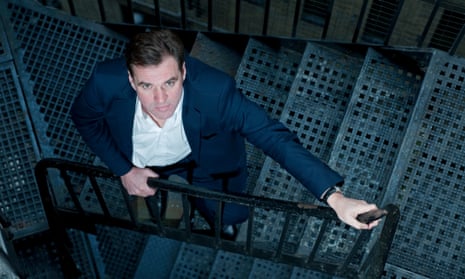Niall Ferguson is not the kind of historian who suffers from understatement. He writes big, muscular books with high-concept ideas that target current concerns through the prism of the past. They are pull-yourself-together warnings to the present by way of arresting historical precedent.
In The Great Degeneration (2013) he describes the collapse of the institutions on which the west made its success. His 2011 book Civilisation was subtitled, with a market eye on contemporary buzzwords, The Six Killer Apps of Western Power. His latest book, The Square and Tower: Networks, Hierarchies and the Struggle for Global Power, claims to be “a whole new way of looking at the world”.
That seems like publisher’s hyperbole. The study of networks is not only all the rage in our “hooked up” era but, as Ferguson acknowledges, several historians and plenty of sociologists have been this way before.
The thrust of Ferguson’s argument is that the world is shaped by two distinct organisational forces: hierarchies and networks. This often seems a distinction without a great – or great enough – difference. Most networks are hierarchical, after all, and there are few hierarchies that are not in some sense part of a wider network.
But the division made, it gives a structure that allows Ferguson to do what he does best, which is to jump around history taking fascinating empirical facts from one place, compelling anecdotes from another, and pulling it all together into a powerful fast-paced narrative.
The problem is that there are simply too many strands and too much disparate information for a coherent thesis to emerge. Indeed, such is Ferguson’s restless desire to uncover connectedness that he can sound like a conspiracy theorist, though he is at pains to distance himself from that perspective. As he notes in the preface, conspiracy theorists see networks as hidden elites in cahoots with the established power structure, while far more often, he argues, networks disrupt the status quo.
But in revisiting such conspiracist tales – the Illuminati and the Rothschilds, for example – he confuses as much as demystifies. The Illuminati, a small 18th-century German order that sought to disseminate Enlightenment ideals, came to be seen – falsely – as the orchestrators of the French Revolution, and, by the modern crank tendency, as the puppet-masters behind everything.
As Ferguson notes, the Illuminati survived by infiltrating the Freemasons, where they achieved little, ultimately collapsing and disappearing long before they were adopted by the lunatic fringe as the all-purpose sinister “they”. So what was their significance? Ferguson doesn’t really explain, other than to say that they were an example of the intellectual networks that were “an integral part of the complex historical process that led Europe from Enlightenment to Revolution to Empire”.
From someone who is not bashful about making bold statements, this is a deeply underwhelming conclusion. But it stands as the basis for his case about the ambiguous, not always progressive nature of networks. It’s an argument that takes in the house of Saxe-Coburg-Gotha, the Cambridge Apostles, the Taiping revolt, Henry Kissinger, al-Qaida and so much else besides, right up to Twitter and Donald Trump.
The effect is dizzying more than stimulating. Ferguson’s breadth of learning is often impressive, but by the end of the book I was little more secure in my understanding of what he was trying to get at than at the beginning.

Comments (…)
Sign in or create your Guardian account to join the discussion